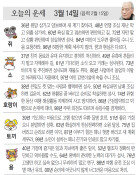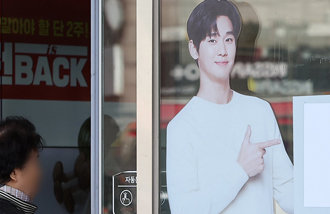Samsung chief`s crisis mgmt. helps revenue but tasks remain
Samsung chief`s crisis mgmt. helps revenue but tasks remain
Posted March. 21, 2013 07:30,
"We`re facing a real crisis. The world`s best companies are collapsing. We don`t know what`s going to happen to Samsung as well. Within the next 10 years, businesses and products that represent Samsung today will mostly disappear."
This is what Samsung Electronics Chairman Lee Kun-hee said in 2008 in returning to lead the group after a nearly two-year absence due to a slush fund scandal. Sunday marks the third year of his return, after which he tightened his reins on crisis management. As a result, Samsung has continued to grow despite the global economic downturn. Its global sales rose to 380 trillion won (340.8 billion U.S. dollars) last year from 290 trillion won (260.09 billion dollars) in 2010.
Overall business, except smartphones, remains stagnant at Samsung Electronics and the five new business lines it selected to lead future growth have not yet shown a visible outcome. Critics say quality has failed to meet expectations.
○ Overcoming crisis via bold investment
Chairman Lee returned to the company at a time when General Motors went bankrupt in the wake of the U.S.-originated financial crisis and Toyota`s massive recall crisis. Amid a hard-pressed situation, he overcame such difficulties through his own bold decision-making and crisis management. Just two months after his return, he announced plans to invest 23.3 trillion won (20.9 billion dollars) over the next decade in five next-generation businesses, including solar cells, vehicle batteries and LED.
He also drastically changed his management style. When Samsung Techwin faced a corruption scandal in 2011, Lee promoted a massive management diagnosis on affiliates, reshuffling personnel to censure them for misconduct, including replacing the president of the sluggish LCD unit of Samsung Electronics. He broke the practice of changing presidents in regular reshuffle periods.
Shin Dong-yeop, a business professor at Yonsei University, said, "After returning to the helm, Chairman Lee instilled a new philosophy and a sense of crisis, overcoming the fundamental limits of management to ultimately enable the group to make a new jump."
Samsung`s new businesses, however, have yet to show tangible results. Among the five next-generation business lines, only medical devices are actively operative. Solar cells and LED remain in a wait-and-see mode due to worsening market conditions. Among the 19 businesses that Samsung ranks No. 1 in, only smartphones (2011), lithium-ion secondary batteries and mid to small-size display panels (2010) have risen to the top spot over the past three years.
○ Wave of economic democratization
The chairman faced difficulty in non-business areas. In 2011, he gave an ungenerous score to the Korean economy and said it "barely avoided flunking." The political sector`s economic democratization movement also hit the group.
Lee also faced criticism over inheritance when his eldest brother Maeng-hee, former chairman of Jeil Fertilizer, filed an inheritance retrieval lawsuit. Most recently, the hydrofluoric acid leak of Samsung Electronics` Hwaseong semiconductor plant aroused fears of a repeat disaster of Samsung Heavy Industries` oil spill in Taean County, South Chungcheong Province in 2007.
Due to health problems, the chairman has been abroad more than two months and has not been at headquarters for 110 days. The group will not hold an official event for its 75th anniversary that falls on Friday.
Lee Jae-yong, the chairman`s son, was vice president when his father returned but is now group vice chairman in growing closer to becoming the successor. Yet Samsung does not use the term "succession" officially. A Samsung Group source said, "Besides improving management performance, we`re striving to be loved by the public."
nex@donga.com
Headline News
- Opposition parties pass amendment to Commercial Act
- Impeachment motions against top officials dismissed
- IU's residence ranked as the nation's most expensive apartment
- K-medicine saves 300 lives in Mongolia through liver transplant skill transfer
- Prisoners in N. Korean camps suffer from torture at minus 30 degrees







